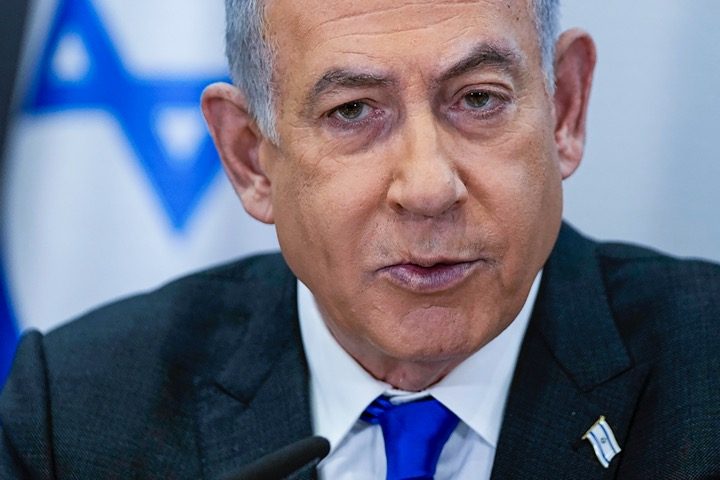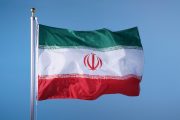
The White House is “perplexed” by what various U.S. officials have slammed as an overreaction by Israeli Prime Minister Benjamin Netanyahu to Washington’s move not to veto a UN Security Council (UNSC) resolution on Gaza, as claimed by a report by Axios.
Notably, the UNSC passed the resolution on March 25, calling for an immediate ceasefire between Israel and Hamas and the unconditional liberation of remaining Israeli hostages, while underscoring “the urgent need to expand the flow” of aid into Gaza.
As the U.S. abstained from voting, Netanyahu’s office lambasted Washington for reneging on its “consistent position” since the start of the war and canceled a high-level mission to the United States ahead of a planned Israeli military operation in the southern Gaza city of Rafah.
Washington’s decision not to veto the resolution was a “clear retreat from the consistent position of the U.S.” since the start of the war, Netanyahu’s office declared following the UNSC vote.
“This withdrawal hurts both the war effort and the effort to release the hostages,” it explained, “because it gives Hamas hope that international pressure will allow them to accept a cease-fire without the release of our hostages.”
Based on the statement, Netanyahu made it clear to Washington on March 24 that he would not send the high-level delegation to discuss the Israeli military’s plans for an operation in the southern Gaza city of Rafah without the veto at the UNSC.
Axios cited one U.S. official as responding:
All of that is self-defeating. The prime minister could have chosen a different course — to align with the U.S. on the meaning of this resolution. He chose not to, apparently for political purposes.
“If Prime Minister Netanyahu felt so strongly, why didn’t he call President Biden?” another official wondered.
White House spokesman John Kirby called the cancellation of the Israeli delegation’s visit “disappointing,” and said that Washington was “perplexed by this” because the U.S. abstention “does not represent a shift in our policy.”
State Department spokesman Matthew Miller contended that the U.S. did not use its veto power because the call for a ceasefire and the release of hostages was consistent with Washington’s policy, noting that the resolution was non-binding.
Netanyahu reportedly used the UN vote as a pretext to not send the delegation to Washington because he “was afraid we might offer something reasonable,” another unnamed official claimed, according to Axios. “He would rather have a fight with us even if it’s not in Israel’s interest…. It’s also a funny way to treat a partner that has given Israel so much support.”
Furthermore, according to a report by Francesca Albanese, the UN Human Rights Council special rapporteur, that was leaked to the public on March 25, Israeli actions in Gaza qualify as genocide on at least three grounds.
There are “reasonable grounds to believe that the threshold indicating Israel’s commission of genocide is met,” said the report, which accused Israel of violating three criteria of the Genocide Convention: Killing members of a community, inflicting “serious mental or bodily harm” to the group, and “deliberately inflicting on the group conditions of life calculated to bring about its physical destruction in whole or in part.”
She maintained that Israel has “destroyed Gaza” over the past five months, killing over 30,000 Palestinians, destroying 70 percent of residential areas, and displacing 80 percent of the enclave’s residents.
“The overwhelming nature and scale of Israel’s assault on Gaza and the destructive conditions of life it has inflicted reveal an intent to physically destroy Palestinians as a group,” Albanese wrote in the report, titled “Anatomy of a Genocide.”
She further claimed that the Israeli military has regarded all of Gaza as either terrorist or terrorist-supporting, meaning that “no Palestinian in Gaza is safe by definition.” She classified the events of the past five months as an “escalatory stage of a longstanding settler colonial process of erasure,” defining genocide as integral to the ideology and practice of settler colonialism.
The Israeli diplomatic mission in Geneva condemned the report as “outrageous” and “simply an extension of a campaign seeking to undermine the very establishment of the Jewish State.” “Israel’s war is against Hamas, not against Palestinian civilians,” the mission told AFP in a statement.
Acting on a petition by South Africa, the International Court of Justice has ordered Israel to do everything it can to forestall genocidal acts in Gaza. In light of this, Albanese’s report could have legal implications for the case.
Meanwhile, Dr. Zaher Sahloul, co-founder of the U.S.-based MedGlobal medical charity, said that the Gaza crisis as a result of the Israeli-Hamas war is “probably the worst crisis that can happen within this war.”
“If there is any offensive, they’re going to have a bloodbath, massacres after massacres.”
He added that his colleagues who are still working in Gaza have warned that an Israeli assault on Rafah could give rise to 250,000 deaths.
Sahloul was among a group of Western doctors who traveled to Washington this week for meetings with U.S. lawmakers and government officials to highlight the desperate living conditions brought on by the Israel-Hamas war.
After doing volunteer work in the Gaza Strip earlier this year, the doctors urged for a ceasefire and the cancellation of the planned Rafah offensive.
Israel declared war on Hamas on October 7, after the terrorist group conducted a cross-border raid, killing more than 1,100 people and taking at least 250 hostages. More than 30,000 Palestinians have been killed in Israel’s bombings and ground operations in Gaza since that time, as per the enclave’s health authorities.
Israel is planning to launch the ground assault on Rafah despite international warnings of a potential catastrophe. More than half of Gaza’s population has escaped to take refuge in the city owing to ongoing Israeli bombardment of other parts of the enclave.




